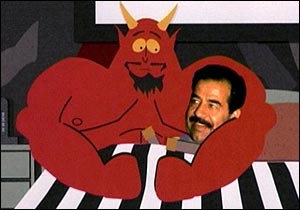Very cool memory, Dash.
I wonder if I chose my life and if everyone does. If so, how do some people end up with really bad ones? Strung out of drugs, mean people, people who are abused or victimized. Maybe we can only see the path, not the pitfalls, detours, and derailments.
I think it'd be nice if we could pick our deaths. I want to be shot by a jealous husband.
Shot by a jealous husband? LoL. Interesting.

It sort of makes you question the legitimacy of things. I was homeless this past January. It turned out to be one of the best experiences I've had as an adult. Taught me a great many things. Is this something I may have signed up for before I was born? No idea.
The one psychic I've ever met whom I considered completely legitimate had a thing about "pacts". She mentioned that certain people, before birth, make a sort of pact that they'd meet and affect one another in a certain manner. For the experience of it.
When she told me this, I was in a relationship with a girl. According to her, the entire reason we met was because we were together in a previous life and it was prematurely ended. Unexpected death was implied. So we agreed to meet again in this life.
I thought that was interesting. A month prior to having met that girl I had a dream with her in it. Clear as day. The events of that particular dream had such an affect on me that I woke up in tears and drove home for a week. Nothing I've ever dreamt has come close to that before or after. But she was in it. And now this random psychic said we were predestined to meet briefly? Weird.
So, maybe there's a jealous husband in your future?
Edgar Cayce has a lot written about this sort of thing. Although my favorite book on the topic is a book written by a man named Dr. Brian Weiss called Many Lives Many Masters.
Nutshell: Dr. Weiss was a psychologist who was (if memory serves me) a non believer in reincarnation. He meets a patient, begins to have her do very deep meditations. Records them. Many MANY psychological disorders present. During her psychological regressions, meant to only take her to childhood, she apparently regresses into previous lives and re-tells key events. Often including her deaths. Discovering many neurosis are linked to the experiences in previous lives. (I.E. a fear of water turns out to be related to her drowning in a previous life. On reliving and confront it via regression, no more fear)
I'll stop there. The more I talk about this, the more out there I get. LoL.







